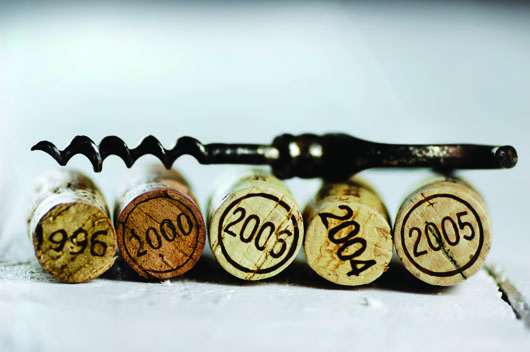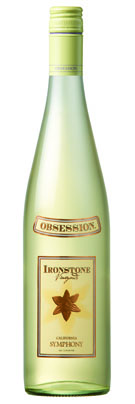As a child, I was frightened stiff of the fable The Ant and the Grasshopper. A playful grasshopper fritters the summer away, while the ant labours industriously to gather grain. When winter comes, grasshopper’s cupboard is bare, so he visits prosperous ant who brushes him off with smug delight. Grasshopper dies of starvation. You can figure out the moral.

It scared the pants off of me, because even as a child, I understood that I was a grasshopper surrounded by a world of disapproving ants. The amount of money I pour into my wine cellar instead of my RRSPs is a good example of this long-standing character flaw. But recently, the tables have been turning. Even before the economic crisis, investors saw wine as a profitable asset class. Now that many stocks are still trying to find the bottom, a good cellar may be better than a good mattress. Who’s smug now?
Investing in wine really means investing in fine wine; mainly bottles from the prestigious “First Growths” in Bordeaux — wine estates specially classified in 1855 for producing wines of superior quality — that command hundreds or even thousands of dollars per bottle. They have unique advantages as an investment. Great wines evolve for decades, and as their taste improves, so does their value on the market. As well, demand for the famous Bordeaux — most notably the slightly less expensive Second Growths — is steadily increasing, especially as new wealth floods into Russia and China. Supply, however, will probably never rise because only a few vineyards are capable of producing master-class grapes and classification upgrades are rare. Plus, who knows what climate change may bring — perhaps Bordeaux won’t be growing grapes in 30 years.
Such a perfect investment may remind you of another cautionary tale (Madoff and the angry mob). There are reasons to be cautious. The 2005 vintage was stupendous, causing First Growth prices to soar. Although the subsequent vintages in Bordeaux have only been so-so, the cost has not come back down to earth. Some detect the soapy smell of a bubble about to burst. As well, the demand for fine wine has plummeted in restaurants now that conspicuous consumption is considered gauche. Wine investment funds have lost approximately 25 percent of their value on the TSX since the crash: bad — but not as bad as every other stock in my portfolio.
My biggest beef with investing in wine has nothing to do with the risk: commoditizing one of life’s greatest pleasures strikes me as distasteful and a little sad. I’d rather savour wine than use it to pad my bank. That’s why I’m a grasshopper.
Here are some of the ways that you can find money growing on vines:
Wine investment funds: Fund managers buy a portfolio of fine wine, selling as it matures. Before the crash, returns were phenomenal (around 90 percent over five years). Accilent’s Wine Investment Fund is the only one in Canada.
DIY: Unfortunately, selling your own matured bottles is contrary to s. 5.(1) of Ontario’s Liquor Licence Act. Between you, me, and the thousands of lawyers reading this magazine, I’ve heard of several connoisseurs who’ve informally sold a well-selected wine for 10 times the purchase price.
Auctions: Since 2002, Ritchies Auctioneers holds Canada’s only commercial wine auction, where private collectors buy and sell fine wines by the case. The 2007 auction realized $3.2 million.
Into the Short Cellar
 Ringbolt Cabernet Sauvignon 2007
Ringbolt Cabernet Sauvignon 2007
$19.95, Vintages Essential #606624, Australia
This is a wine of character, even if it’s the character of a brooding prick. Mocha, smoke, and  the oily flavour of freshly ground peppercorns are aggressive in this intense but mid-weight wine. Two to three years will take the sharp edges off, but I like it now: raw and powerful.
the oily flavour of freshly ground peppercorns are aggressive in this intense but mid-weight wine. Two to three years will take the sharp edges off, but I like it now: raw and powerful.
Ironstone Vineyards 2007 “Obsession” Symphony
$14.95, Vintages #355784, USA
A refreshing California white that women adore: the nose is so perfumed that some girls won’t know whether to drink it or dab it on their wrists. To me, it is a gorgeous disaster: disorganized flavours, floral aromas, and pulses of sweetness and acidity. For drinking, not aging.

